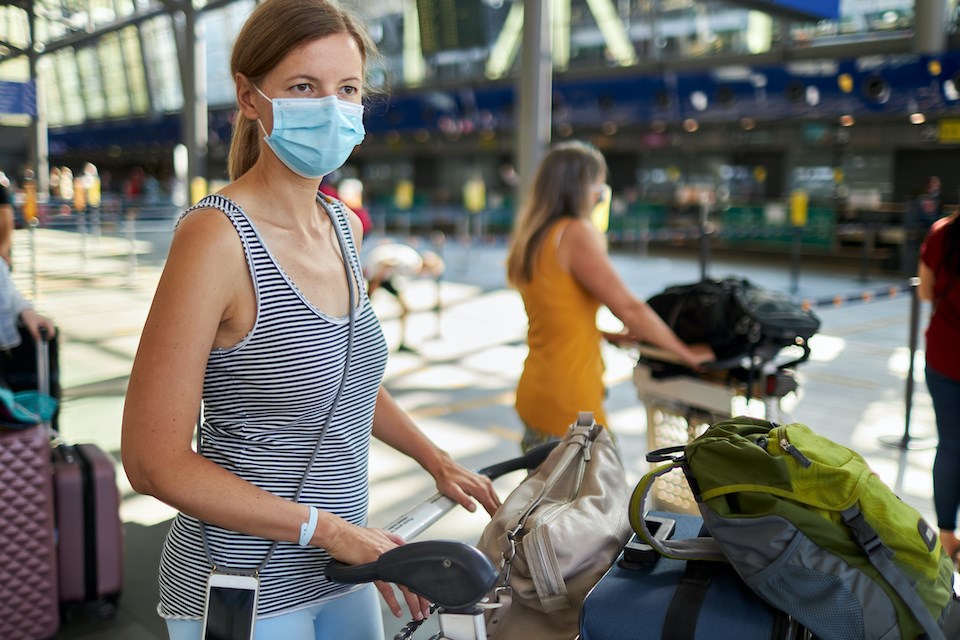An air passenger rights advocate says people need to do some research if an airline has cancelled their ticket—even if they are issued a refund.
Dr. Gábor Lukács is the founder and president of Air Passenger Rights—a group that gives airline customers information about their rights so they are capable of enforcing them against airlines. He told Â鶹´«Ã½Ó³» in a phone interview that Canadians are frequently taken advantage of by airlines because they aren't aware of the rules.
And while many airlines will issue refunds due to lengthy delays and cancellations, the air passenger rights advocate said they may be entitled to more than just the cost of the ticket.
Your rights when travelling within, to, or from Canada by air are governed by (APPR). Airlines are responsible for providing air travellers with accommodation if they are forced to wait overnight due to a flight delay or cancellation. The airline must also provide transportation to the accommodation and back to the airport.
But there are instances where an airline might not have to cover the cost of an overnight stay, particularly in severe, unexpected weather events.
"If you have to spend the night in the hotel because your flight was cancelled genuinely due to weather, then that's not the airline's responsibility," highlights Lukács, who noted that passengers need to consider why the flight was cancelled and if it was out of the airline's control.
While there are some circumstances that the airlines cannot prevent, many cancellations "are simply economic decisions," he added. "If not the vast majority of them."
Even in an instance where an airline has to deice a plane, Lukács said airlines are not off the hook for booking a passenger on another flight, free of charge. They must plan and prepare for expected inclement weather, which includes budgeting for typical winter conditions.
When it comes to cancellations within the airline's control, the company is responsible for booking the passenger on another flight or issuing them a refund. But, as the air passenger rights expert points out, "The choice, whether to rebook to get a refund, is the passengers's. This is a key point because airlines cannot force refunds on passengers."
But if a passenger is informed of the delay within 14 days before the departure time that is indicated on their original ticket, APPR's subsection 19(1) states that they are entitled to monetary compensation, but only if it is for reasons other than safety-related ones. This is why it is critical to check the differences between your original ticket and the one that you eventually fly on.
If a major Canadian carrier delays a flight for over three hours, passengers are entitled to $400 compensation, even though they are still booked on the same flight. For over six hours, they are entitled to $700 and for over nine hours, they are entitled to $1,000. These figures are significantly less for small carriers, however.
The airline must also communicate new flight status information to you as soon as possible. For delays, they must provide status updates every 30 minutes until a new departure time is set or new travel arrangements are made.
To receive compensation for a flight delay or cancellation, you must make a claim with the airline in writing within one year of the incident date. The airline has a 30-day window to respond by issuing a refund or providing a reason why it believes a refund isn't warranted.
Some other considerations for B.C. air travellers
For passengers who experience a delay while waiting on the tarmac, the carrier must provide them with proper ventilation, lavatories, food, drink, and heating/air conditioning.
If a traveller is booked on a different flight, they must have the same class of service or higher. In other words, an economy seat won't work if the passenger booked a first-class ticket. As such, the carrier must refund the difference in the cost of the applicable portion of the ticket.
What is a giveaway that a schedule change or cancellation was likely within an airline's control?
"How much in advance have they notified a person about [a change]? If they notify you about two weeks in advance...you know that's something for business reasons they decided to change," noted Lukács.
The Canadian Transportation Agency’s outlines several conditions that air passengers must meet to recoup losses incurred during travel. But Lukács underscored that they have a history of being "cozy" with Canadian airlines.
Air Passenger Rights offers a whole section on baggage-related matters, with step-by-step guides and FAQs. You can view that .
Under the APPR rules, if an airline loses your bag or your luggage was damaged or delayed, you may file a claim for the expenses you incurred up to approximately $2,300; it must also reimburse you for any baggage fees you paid.
Important considerations for baggage claims:
- You must submit a written claim with your airline within 7 days of receipt of your baggage if it is damaged.
- You must submit a claim within 21 days for baggage that is potentially lost.
If you do not file your claim right away, the airline may deny it.
B.C. residents who booked a travel package, flight, or accommodation through a third-party supplier may file a complaint with Consumer Protection BC if they meet specific criteria. Travellers must try to receive a refund from the travel provider first. Find out more information about the qualifying process .
The following notice must also be made available on all digital platforms that the carrier uses to sell tickets and on all documents on which the passenger’s itinerary appears:
“If you are denied boarding, your flight is cancelled or delayed for at least two hours, or your baggage is lost or damaged, you may be entitled to certain standards of treatment and compensation under the Air Passenger Protection Regulations. For more information about your passenger rights please contact your air carrier or visit the Canadian Transportation Agency’s website."



